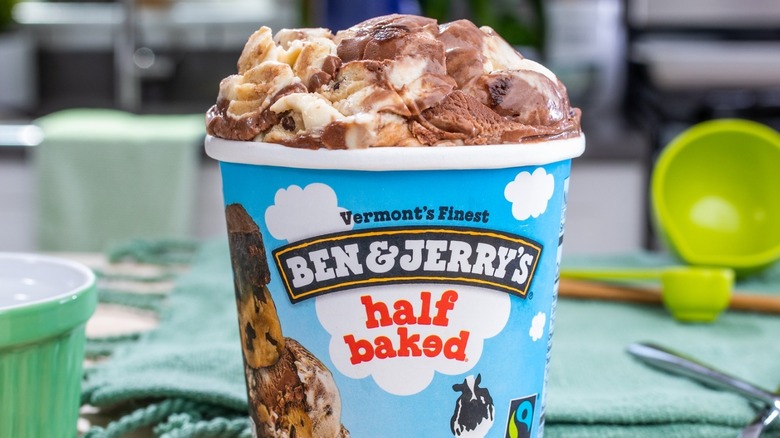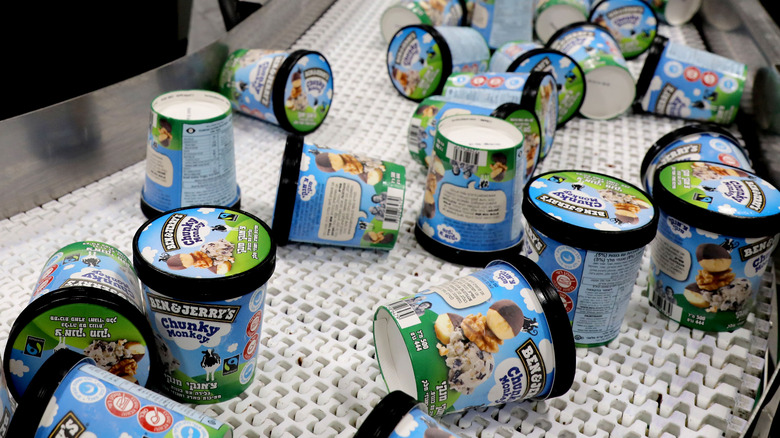Why Ben & Jerry's Is Furious With Its Parent Company
Ben & Jerry's has long been known to take a stand on political and social issues. That reputation is thanks to the unique structure that the ice bream brand's original owners, Ben Cohen and Jerry Greenfield, reached with its current owner, Unilever, which acquired the company in 2000, per The New York Times. Under the deal, Ben & Jerry's was allowed to keep an independent board that would work to ensure that the brand stay true to its values. As the company's founders pointed out in a 2021 New York Times op-ed, "That structure is the magic behind both Ben & Jerry's continued independence and its success," as it has helped the directors "to protect the company's essential brand integrity and to pursue its social mission" — all with the financial backing of a food giant like Unilever.
While the deal might sound a bit unusual, it's actually a pretty timely move for today's consumer. According to an Ipsos poll reported in 2021, "60% of consumers would be more likely to consider a brand that is aligned with their own views," while "half said they would stop using a brand they disagree with." While Ben & Jerry's has largely been able to keep its values at the forefront, it ran into some contention with Unilever last year concerning the Israel-Palestine conflict.
Ben & Jerry's wanted to stop selling ice cream in the Occupied Palestinian Territory
Ben & Jerry's social activism was very much at play when its independent board decided to stop selling the brand's ice cream in Israel's Occupied Palestinian Territory in the West Bank and parts of East Jerusalem. The company's decision, which was announced through a press release in July of 2021, clarified that although its ice cream would not be sold in the occupied territories, it would still be available in Israel through an unspecified license agreement.
Instead of following the board's wishes, Unilever's Israeli licensee, Avi Zinger, continued to produce Ben & Jerry's as normal and sell it in the occupied areas, per The Guardian. As a result, Ben & Jerry's went to court, asking for the licensee agreement between Zinger and Unilever to be dissolved. The Guardian quotes a portion of the complaint, which claims Unilever's deal was made "'without the consent of Ben & Jerry's Independent Board,' and went against the merger agreement that gave the board the ability to protect the founder's values and reputation."
A U.S. court has decided against Ben & Jerry's
Ben & Jerry's argued in court that allowing Unilever to transfer the ice cream brand's assets to Zinger could lead to its products being "used to oppose issues that it supports," per The Wall Street Journal. Ultimately, a judge for the Southern District of New York decided that Ben & Jerry's couldn't prove that the transfer would do the brand "irreparable harm" and turned down the company's request to prevent Unilever from handing assets to Zinger. This agreement now allows the licensee to sell Ben & Jerry's ice cream throughout Israel, including the occupied territories, with packages that carry both Hebrew and Arabic names.
While neither Ben & Jerry's nor Unilever has offered any comment, the Journal reports that a larger fight is coming: The Ben & Jerry's independent board has filed a separate lawsuit in efforts to "clarify" just how much oversight it has over the Ben & Jerry's brand.


